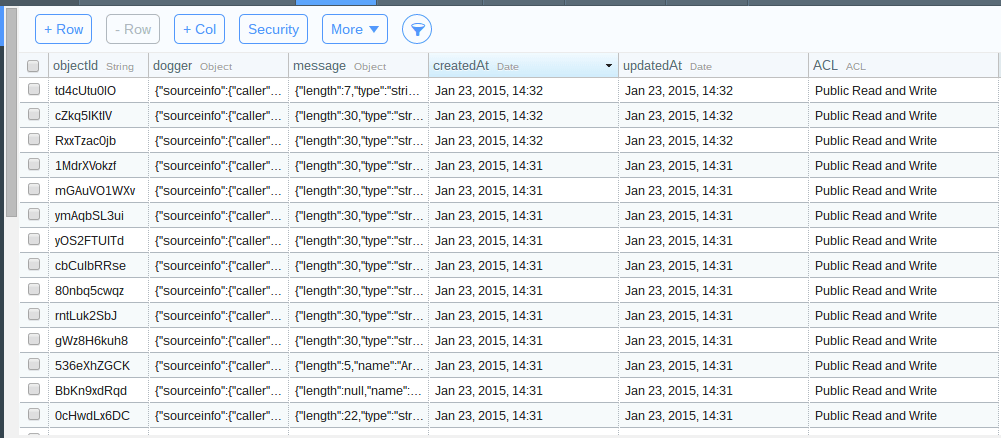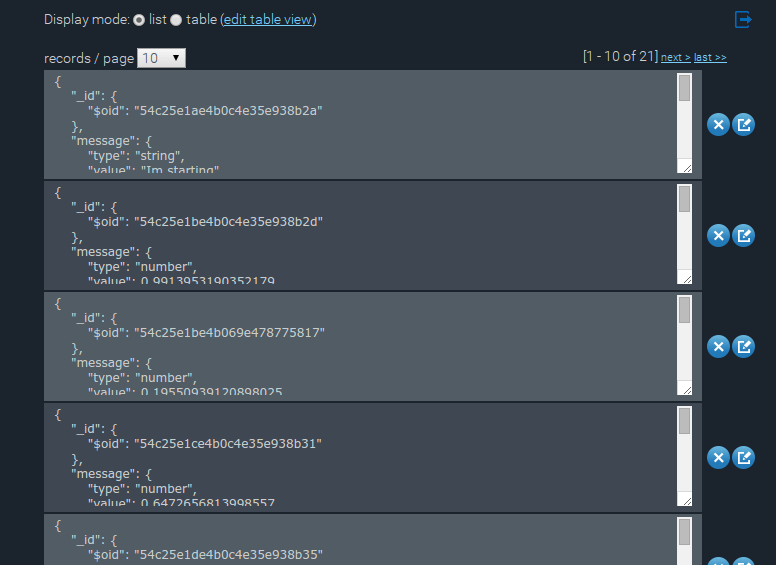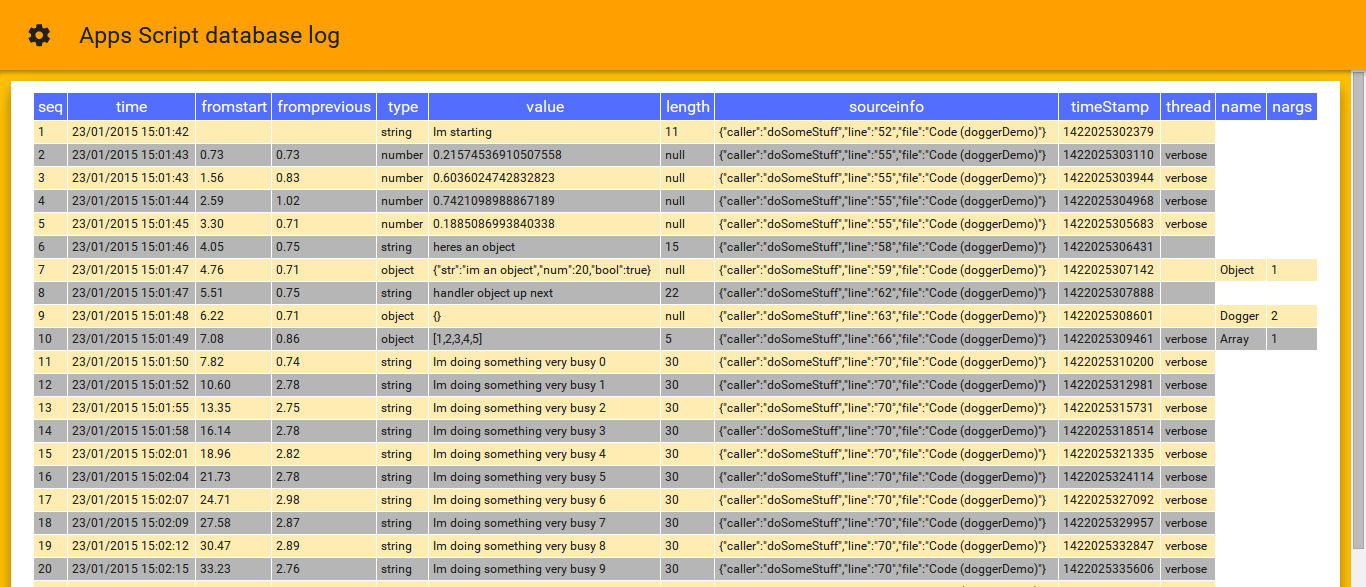- Include the necessary library
- Get a dbabstraction handler for the type of database you want to use
- Get a dogger handle
- Start logging
Libraries
cDriverParse cDbAbstraction cDriverSheet cDogger cDriverMongoLab
you can get info about them below
Get dbAbstraction handlers
// note i have my parse credentials already stored here
function getParseHandle () {
return new cDbAbstraction.DbAbstraction(cDriverParse, {
driverob:JSON.parse(PropertiesService.getScriptProperties().getProperty('parseKeys')),
siloid:'doggerlogger',
dbid:'xliberation'
});
}
for Sheets (see DriverSheet for more info)
function getSheetHandle() {
return new cDbAbstraction.DbAbstraction(cDriverSheet, {
siloid:'doggerlogger',
dbid:'1yTQFdN_O2nFb9obm7AHCTmPKpf5cwAd78uNQJiCcjPk'
});
}
For MongoLab (see Driver MongoLab for more info)
function getMongoHandle () {
return parseHandle = new cDbAbstraction.DbAbstraction(cDriverMongoLab, {
driverob:JSON.parse(PropertiesService.getScriptProperties().getProperty('mongoLabKeys')),
siloid:'doggerlogger',
dbid:'xliberation'
});
}
Get Dogger handlers
function getDogger (handle, thread) {
return new cDogger.Dogger(handle, {
clearfirst:false,
thread:thread,
failsilently:false
});
}
Start Logging
// do some single thread tasks
function simpleParse(){
var dogger = getDogger(getParseHandle());
dogger.clear();
doSomeLogs(dogger);
}
// do some single thread tasks
function simpleSheet() {
var dogger = getDogger(getSheetHandle());
dogger.clear();
doSomeLogs(dogger);
}
// do some single thread tasks
function simpleMongo() {
var dogger = getDogger(getMongoHandle());
dogger.clear();
doSomeLogs(dogger);
}
Here’s the simulated workload that’ll be doing the logging
function doSomeLogs(dogger) {
// try various logging
dogger.log('Im starting');
for (var i = 0 ; i < 4 ; i++) {
dogger.log(Math.random());
}
dogger.log ('heres an object');
dogger.log ({str:'im an object', num:20, bool: true});
// what happens if we try to report a library object
dogger.log ('handler object up next');
dogger.log(dogger);
// an array
dogger.log([1,2,3,4,5]);
// simulate some time passing and things happening
for (var i = 0 ; i < 10 ; i++) {
dogger.log('Im doing something very busy ' + i);
Utilities.sleep (2000);
}
// im done
dogger.log('Im done');
}
And here’s the output in a sheet
and in the parse.com dashboard
Of course it looks better and more consistent if you use the Multi user apps script logger polymer client, but for that you need to have set up yourDoggerServer as described in Setting up your Apps Script Environment for Dogger
For more on this see Multi user apps script logger, Polymer and Database abstraction with google apps script


